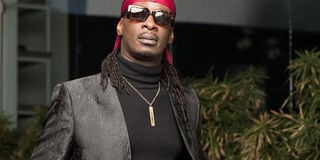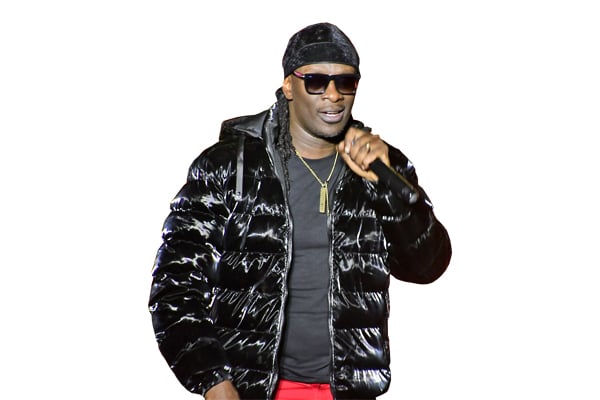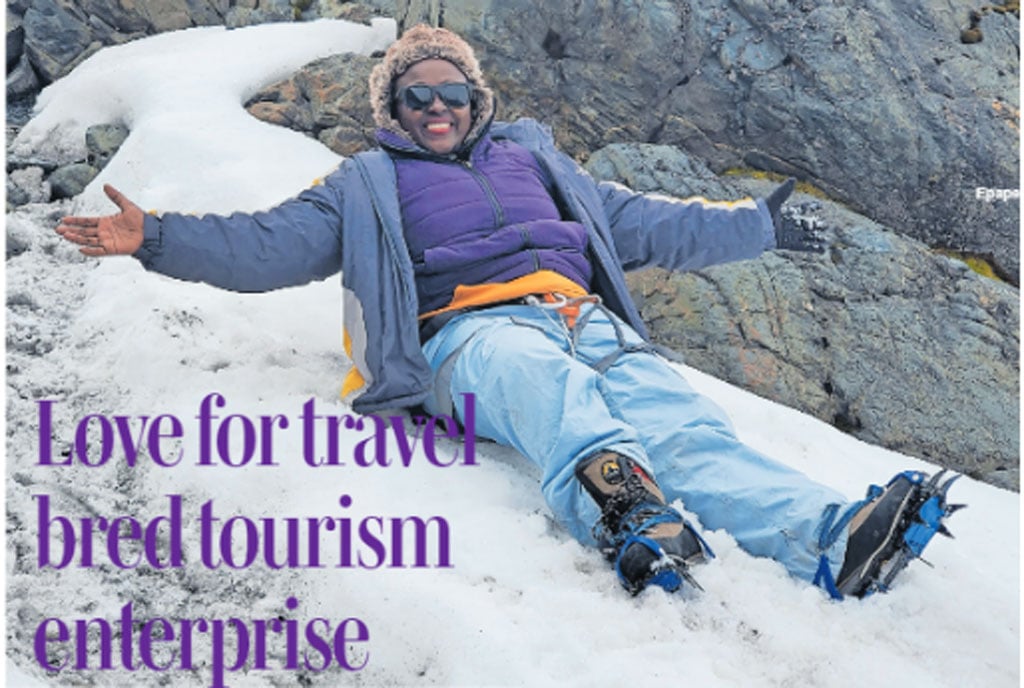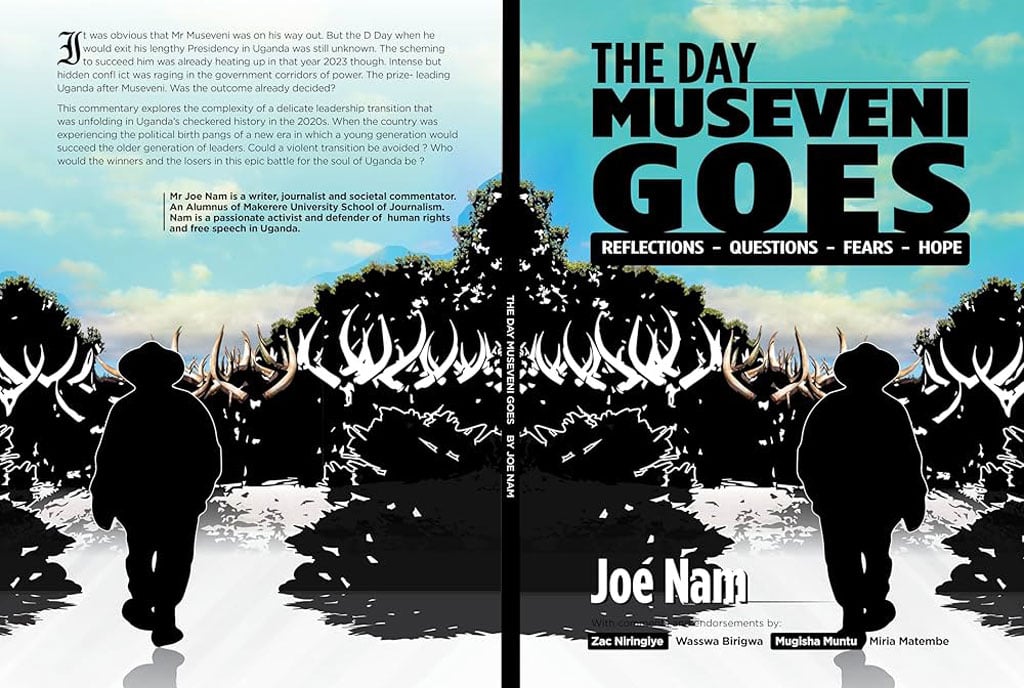
Nameless, real name David Mathenge.
In the 1990s, Moses Ssali, alias Bebe Cool, and Joseph Mayanja, alias Jose Chameleone, made the trip to Nairobi on stools in a bus corridor, chasing a dream.
At the time, Nairobi was bustling culturally, with some of the best producers and artistes breaking out at the same time. Both Bebe Cool and Chameleone became members of Ogopa DJs outfit.
On the other side of Nairobi, David Mathenge, an architecture student, was working night shifts in the bank.
At that time, he knew he loved music but had no idea how far the whole thing would go. In fact, he loved his architecture more; he would write music for fun; once or twice, he recorded with a friend, but it was all for fun.
Joining the industry
As an introvert, he did not want to perform and never thought about himself as a performer. One time, a friend heard him rap and asked him to put a verse on one of his songs.
“We recorded a song, and I had a verse; for me, it was for fun, I think I heard the song once. Because it just happened, I did not have a name. One time, this guy called me to Grand Regence to see something, and the next thing I knew, we were supposed to perform. I was wearing sandals, and we had to be introduced, and I did not even have a name. I think I called myself something like the mechanic,” he says.
He says his verse was at the end of the song, and he spent much of the time just walking around the stage with some revellers wondering what his contribution to the song was.
“My part came, I did it, and after the performance, I went and sat thinking, ‘that was bad!’, then a chick tapped me on the back and said, ‘That was a nice performance’, and we started talking. That chick was Wahu; that is the first time we met,” he says.
After that performance, music remained something he did for fun.
One time, while working in the bank with a friend, Newton, Capital FM, one of the biggest radio stations in Kenya, started a rap competition; rappers had to call in, freestyle on an instrumental, and stand a chance to work with one of the biggest producers in Kenya, Ted Josiah.
“Under normal circumstances, I would not have called, I did not want to put myself out there. I was working with this guy, side by side. I left for the next room and made the call. So the presenter asked if I wanted to try. I decided to sing one of the songs I had been writing, and Ted Josiah liked it. I was asked what my name was, I did not want to say my real name because Capital FM was the only radio, so my boss could be listening and would think that instead of working, I was using company phones to call during radio shows. I said Nameless and the presenter said, “Nameless! That is an interesting name,” and that was it,” he says.
Mega rider
When he went back to his desk, Newton told him about a one Nameless who called in and was amazing. When they asked the audience to vote, Nameless won, and like that, he went on winning more rounds and always made his calls in one of the empty rooms in the bank.
“Whenever I came back, Newton would tell me that every time you go to the toilet, this guy called Nameless calls in, and he is amazing. This gave me more confidence. I won and had to meet Ted Josiah on Friday. I had the song written, and that is when we recorded Mega Rider,” he says.
“We recorded over the weekend, and on Monday, the presenter played the song, I remember Newton saying, Do not go to the toilet; you have to listen to this guy. I heard the song for the first time on the radio and saw the magic Ted had done with it. We listened to the song with Newton, and somehow, I started rapping to the song; that is when I told him it had been me all along,” he says.
He was not prepared for what he was getting into, so he started forging a brand. A fan of The Undertaker, he started performing with a mask, and people knew the song Mega Rider and the performer with two dancers.
“It was very easy; I could easily sit in a matatu to go for performances, and even hear people talking about me. I was anonymous for two years until my picture was leaked in the papers,” he says.
He started performing at shows and often met Bebe Cool and Chameleone, who were at the time signed to Ogopa DJs. He liked the fact that both artistes knew how to get the audience dancing while performing, something he could hardly get with a song as chill as Mega Rider.
After two years with Ted Josiah, Nameless did not record another song with the super producer. That was mainly because he was never his main artiste; he was mainly focused on Gidi Gidi Maji Maji.
Coming to Uganda
Nameless joined Ogopa Deejays at a time when other artistes such as Mr Lenny, Mr Googz, and Vinny Banton were joining as well. It was also the time Bebe Cool and Chameleone left Nairobi for Uganda.
Both Bebe Cool and Chameleone released music that did not only take Uganda by storm but also changed the industry. Plus, the two continued working between Kenya and Uganda; most of the time, they carried back music by artistes such as Nameless, Wahu, Amani, Redsan, Mr Lenny, and Mr Googz, among others.
By the beginning of 2002, it could be hard to gauge if Kenyan music was big in Uganda, but Ogopa DJs was a big deal. Ninanoki, Leo Ni Leo, Tahiti, Julie, and Githurai were big on Kampala’s urban stations.
Later, towards the end of 2002, Ogopa Deejays came to Uganda for a performance, Nameless says for the show, he, along with Redsan, Amani, E-Sir and Mr Googz, made the trip.
“When we reached Entebbe Airport, there was a limousine waiting for us, it was a big deal. None of us back in Kenya even owned a car,” he says.
That was Nameless’s first trip to Kampala, and over the past 20 years, he has lost count of the times he has been here.
Over the course of coming to Uganda, Nameless has worked with Bebe Cool, Washington, and Blu3. He has even recorded a song in Luganda, which he says he was shocked was appreciated in Nairobi.
“From the first time I came to Uganda, I had a connection, it was like meeting a brother you did not know you had,” he says.
Over the years, Nameless has made so many friends in Uganda that even during the interview, his phone is buzzing, mainly from Ugandans who have gotten word that he is in town.
Besides his trips to Uganda, there is a lot Nameless has been part of in Kenya, for instance, he was a director of the Music Copyright Society of Kenya, a role he says he took when he had the zeal to fight for what rightfully belonged to artistes. At the time, like Uganda, Kenya was struggling with issues of copyright; most artistes thought the society was cheating them.
“It was a learning experience for me; I realised it will be a long journey. It is a slow process, When I was there, I was there to change things but while there, I noticed there were many players with many agendas. You cannot do things because you believe they will work; it is a democratic process and some people do not even know where the problem is. I served my two years and when I was leaving, my recommendation was that half the leaders should not be artistes. As artistes, we are very emotional about our work. You need someone who knows what works and how to make financial sense out of music as a product,” he says.
Kenyan music and copyright
He adds that there was a time Kenyan artistes tried to fight their DJs, not noticing they were choking the industry.
“DJs were supposed to be our allies, but then they decided to charge them a lot, and they decided to stop playing local music altogether,” he says.
Two weeks ago, when Ugandan song Hoozambe went viral, Nameless was one of the public figures that did the Hoozambe challenge on TikTok, a platform he embraced a few years ago, as part of his reinvention. He says only a few Ugandan songs at the moment make it to Kenya.
“There is not a lot of Ugandan music playing in Kenya; maybe it could be a language barrier issue. Because people loved Golddigger, probably because of the English hook, some songs have crossed over because they have had bits of Swahili and English, he says, adding that people are listening to artistes such as Azawi.
On Sunday, Nameless will be headlining the revamped Blankets and Wine, he says. For many of the times he has performed in Uganda, he has used playback, and this time, he will perform with a live band.
“Nameless live and playback Nameless are totally two different experiences, I love the Blankets experience and how they curate their music. Through live band, I will teach the audience some music they do not know and I will play some music they know. I am playing with a Ugandan band, and that helps me pick up some of the energy from here as well. I look forward to giving guys the best,” he says.
Homeboy
Over the years, Nameless has made so many friends in Uganda that even during the interview, his phone is buzzing, mainly from Ugandans who have gotten word that he is in town.








